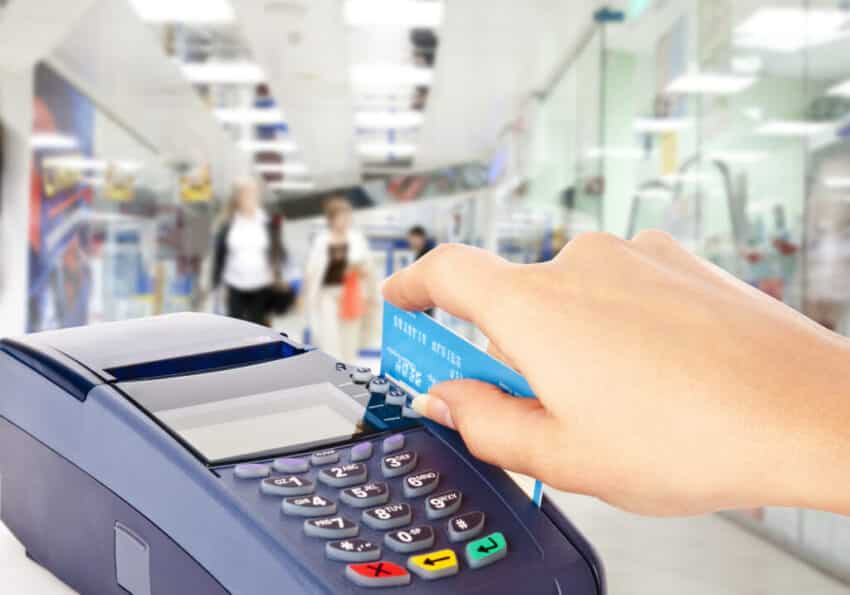According to Link, the company that manages the UK’s network of public cashpoints, cash withdrawals have dropped by more than 60% during the coronavirus lockdown.
To some, this might indicate that the country is moving away from traditional cash payments and towards a future of online shopping and contactless tapping.
Whilst the future of the UK’s retail economy is still very much open to debate, Sweden offers a glimpse of what a largely cash-free society could look like. Reports suggest that just 1% of the Scandinavian nation’s GDP circulates as cash, showing that it is possible to live without notes and coins.
In this article, we look at some of the factors affecting the use of cash and whether the UK should start looking towards a society that focusses more on card payments and eCommerce.
What is a cashless society?
A cashless society is an economic system in which financial transactions are not conducted with physical money (such as banknotes and coins) but with bank transfers and other similar digital methods.
Cash-free societies have existed throughout history, although in the past they referred to systems where currency was not used at all and items were exchanged for other goods or services. Today, you would be hard-pressed to find any society where there is not some form of currency. However, that doesn’t mean that no economies are moving towards a system that is less dependent on real money.
How did Sweden become cashless?
A 2018 study conducted by the Swedish Sveriges Riksbank revealed that only 13% of Swedes had used cash for a recent purchase. That figure was even lower in the capital, Stockholm, where the majority of people surveyed couldn’t even remember the last time they used a cashpoint.
Sweden is something of a frontrunner for the cash-free revolution – a society which has traded paper money and coins for convenient mobile payment apps. To some extent, the change has been organic. It started with coffee shops, cafes and bakeries that saw their customers putting fewer and fewer cash payments through the tills. It soon caught on, with furniture giant IKEA making some of its stores completely cash free and a national rail company making it possible for customers to keep digital tickets on microchips under their skin.
There’s no doubt that Sweden has adapted to living a cash free lifestyle, but whilst you’re now more likely to see a mobile card reader than a charity collection bucket or staff tip jar, some still hold their reservations. The central Riksbank has even spoken out about the risks of going totally cashless, and it’s clear that the move could be devastating for those who are most dependent on physical money.
Could the UK benefit from going cash free?
Going cash free is no easy undertaking, but there are many benefits of doing so and the UK could certainly benefit from this new approach to currency.
For one thing, moving away from the use of physical money could help to reduce economic crime and tax avoidance. Whilst it is impossible to quantify the amount of tax revenue lost from undeclared cash-in-hand payments each year, moving to a digital system would mean that all transactions are recorded and subject to tax where it’s due. Similarly, without cash deposits on commercial premises there would be less incentive for criminals to conduct break-ins or robberies.
Just as businesses could benefit from the added security of digital payments, consumers could also reap the rewards of going cash free. For one thing, payments made in cash will not improve your credit score – a rating that is essential when applying for a mortgage or loan. Paying in cash leaves no paper trail and so whilst some people prefer the anonymous nature of using physical money, doing so could leave you without a complete financial record. With every transaction recorded clearly on your bank statement, you could not only work towards a higher credit rating but also find it easier to track and manage your money.
These are just some of the benefits of a cashless society, but whether the UK is ready to make such a jump is another question altogether.
What would need to change?
A new pressure group, Access to Cash, has suggested that the UK could be “sleepwalking” into a cashless society. For instance, 2019 reports suggest that 40% of the UK’s small businesses do not accept card payments. Despite this, Bank of England reports show that over £70 billion worth of notes remain in circulation showing that cash really is king – at least for now.
Whilst some sectors hold out, any change to the use of currency can only be driven by businesses adapting to modern payment methods. Moving forward, the availability of card payments would need to greatly increase to ensure that consumers can pay for products and services of all kinds. One company with a potential solution to these barriers is UTP Group, a leading provider of merchant services. With a full range of Ingenico mobile card machines, portable card readers and easy to deploy virtual terminals for online transactions, their payment solutions could make it easier than ever for businesses to move away from cash.
Overall, quite obviously England is undergoing a transition towards a more cash-less society. While complete elimination of cash is unlikely, higher reliance on digital payments could reduce incidences of fraud, tax evasion and money laundering. What is clear is that the transition can only be enabled the use of high quality and reliable digital payment solutions, which will allow businesses to evolve with the quickly changing market.


